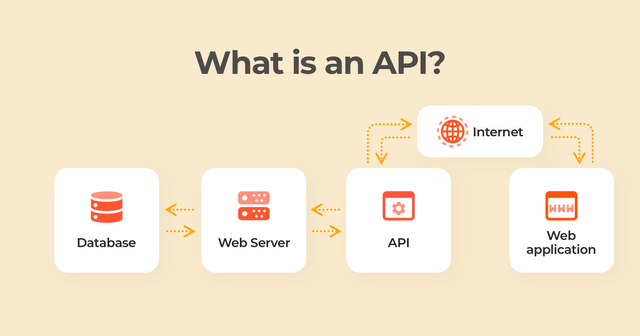Know what API is.

An API, or Application Programming Interface, is a set of protocols, routines, and tools for building software and applications. APIs allow different software systems to communicate with each other, exchange data, and interact seamlessly.
In simpler terms, APIs are a way for different software applications to talk to each other and share information. Think of them as a bridge between two different systems or applications that allows them to interact with each other.
APIs can be used for a wide range of purposes, from enabling third-party developers to build applications on top of an existing platform to integrating different systems and automating processes. They are essential in building modern software applications and powering the interconnectedness of the digital world we live in.
One of the key benefits of APIs is that they enable developers to build applications and services without having to write everything from scratch. Instead, they can use existing APIs to access data, functionality, or services that have already been built and tested.
For example, if you wanted to build an application that integrates with a social media platform like Facebook or Twitter, you wouldn't have to build your own login system, user authentication, or API to access user data. Instead, you can use the existing API provided by the social media platform to access that information and build your application on top of it.
APIs can be either open or closed, depending on how they are designed and managed. Open APIs are publicly available and can be accessed by anyone, while closed APIs are restricted and require authorization or a special license to access.
Open APIs are often used by third-party developers to build new applications or services that integrate with an existing platform. For example, the Google Maps API is an open API that allows developers to embed maps, geocoding, and location search functionality in their own applications.
Closed APIs are used by companies to protect their proprietary data and services from unauthorized access. For example, a company that provides a payment processing service may have a closed API that only authorized parties can access to process payments.
APIs are typically designed with a specific purpose in mind, and they provide a specific set of functionality or data that can be accessed by developers or other systems. For example, the Twilio API provides programmable SMS and voice functionality, while the Google Cloud Vision API provides image analysis and recognition capabilities.
APIs can be accessed in a number of ways, depending on the specific API and the requirements of the application using it. Some APIs require developers to use specific programming languages or frameworks, while others are designed to be accessed through HTTP requests or RESTful APIs.
In addition to providing access to data and functionality, APIs can also be used to automate processes and workflows. For example, a company might use an API to automatically process orders or track inventory levels in real-time.
Overall, APIs are an essential tool for building modern software applications and enabling the interconnectedness of the digital world. They allow different systems and applications to communicate with each other, exchange data, and interact seamlessly, making it possible to build new applications and services on top of existing platforms and services.
TL;DR
API stands for Application Programming Interface, which is a set of protocols, routines, and tools used for building software applications. APIs act as intermediaries, enabling different software applications to communicate with each other. They facilitate seamless integration between different platforms, enabling them to share data and functionality.
Directual is a No-Code API and Database builder that allows users to create APIs and databases without needing any coding skills. With Directual, users can easily create APIs and databases using drag-and-drop tools and pre-built templates. Directual also offers a wide range of features such as user authentication, data storage, and data validation.
One of the key advantages of Directual is its ease of use. Users can create APIs and databases in minutes without needing any technical knowledge. Directual also offers a high level of flexibility, allowing users to customize their APIs and databases to suit their specific needs. Directual is also highly scalable, enabling users to handle large amounts of data with ease.
If you are looking for a simple, powerful, and flexible way to create APIs and databases, then Directual is the perfect solution for you. To learn more about Directual's features and capabilities, visit https://www.directual.com/features/database-and-api-builder.
Helpful information. I'm generally not very well versed in various modern technologies and apps, so such articles are often useful to me.